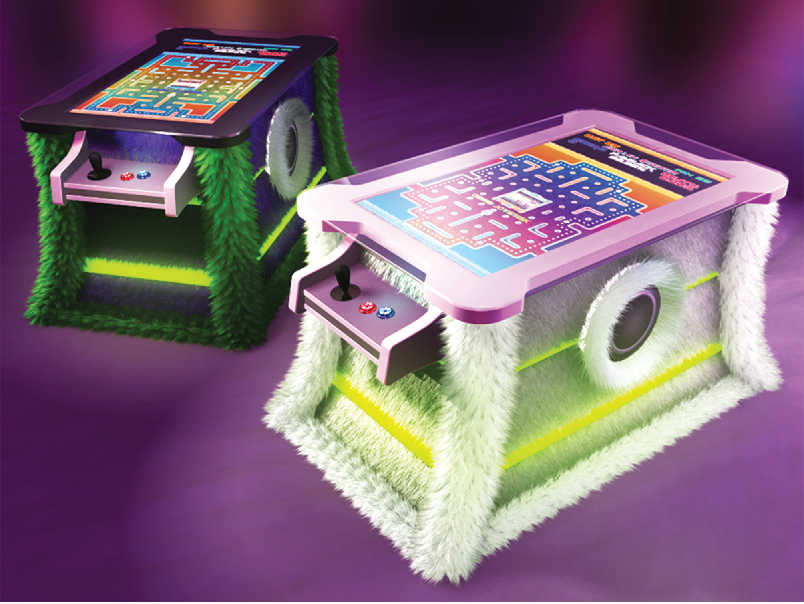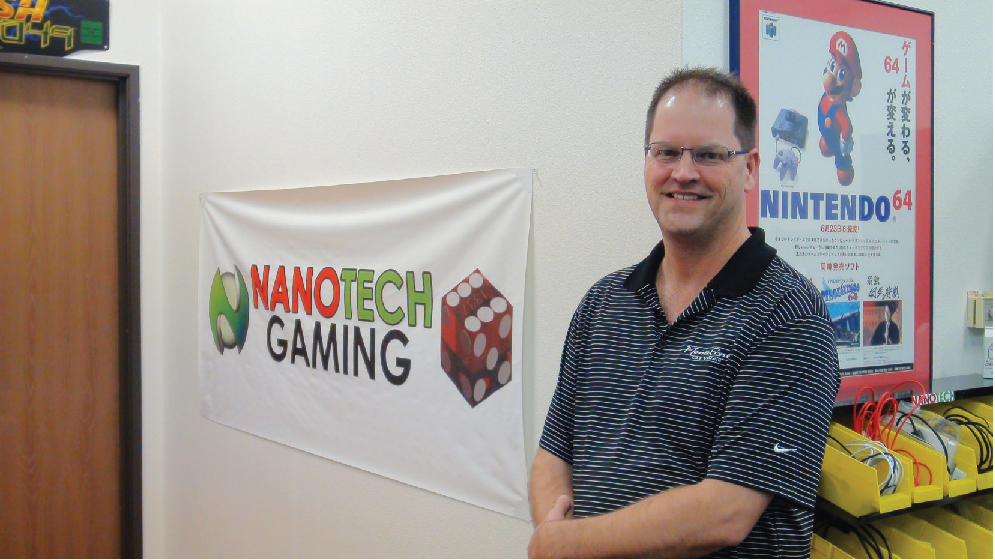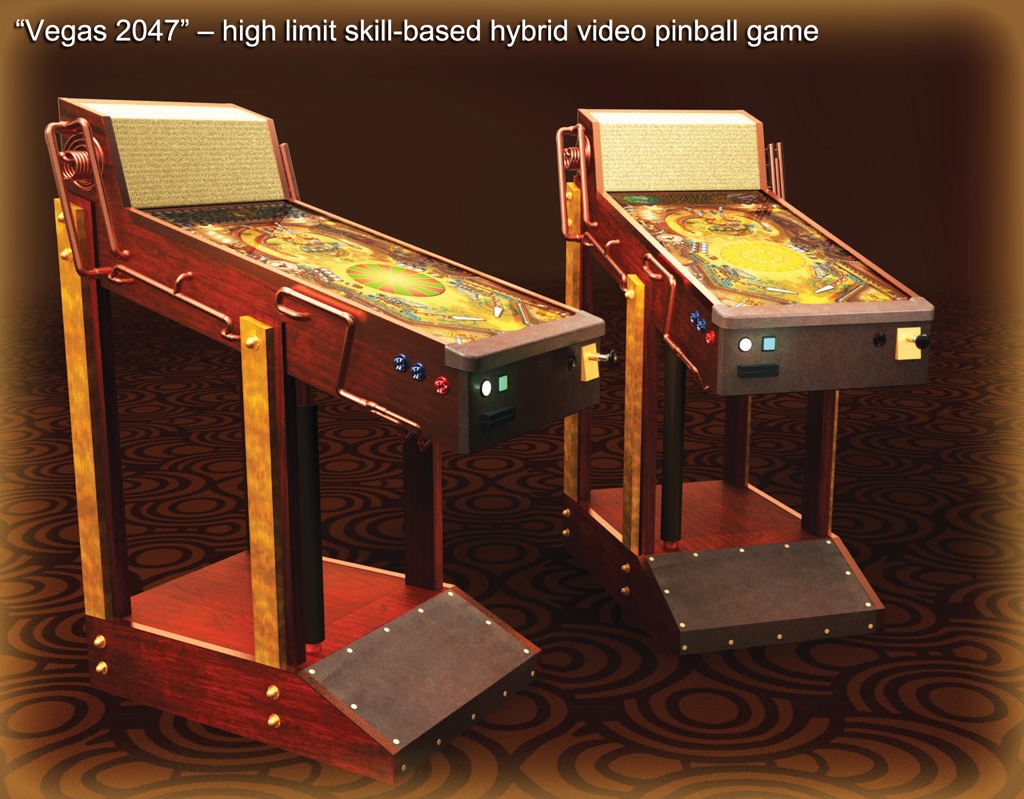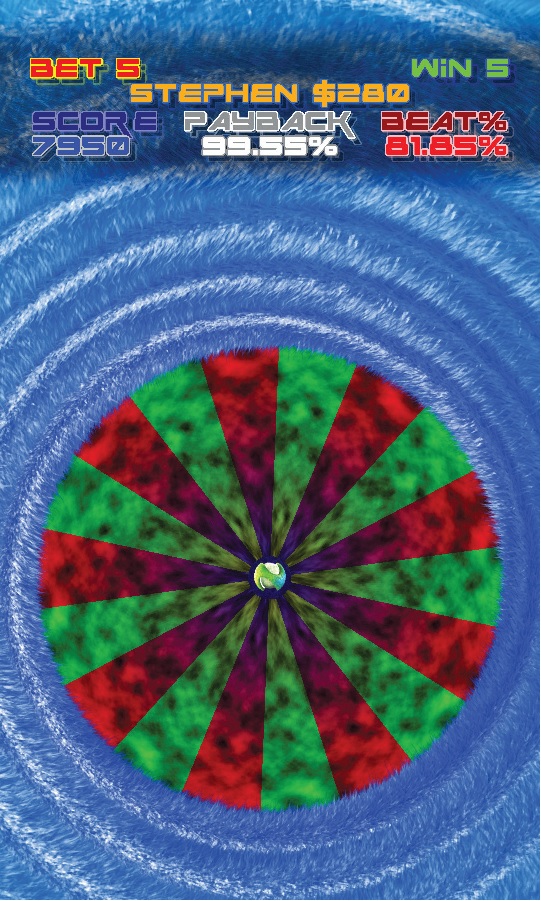Damien Connelly talks with Aaron Hightower, VP Gaming Technology for NanoTech Gaming

Arcade games are all about short experiences, which is identical to slot games. With arcade games, you generally don’t win anything other than the kudos of getting your name on the leaderboard. It’s more about extending your time on device; the better you are at playing a game, the longer you can play it,” noted Aaron Hightower, VP Gaming Technology for Las Vegas-based NanoTech Gaming.
Aaron previously developed arcade games for Atari, then later moved to IGT to develop slot games, before joining NanoTech Gaming. While at Atari, Aaron worked on the equivalent of a multi-State Wide Area Progressive, linking arcades across the U.S. to allow for tournament arcade gaming that paid-out cash prizes.
Atari owns brands that have already been transferred to slot games, including Centipede and Pong. As AGEM’s Executive Director, Marcus Prater, commented in our exclusive interview with him (see Casino Life June/July 2015, pp 12-14), AGEM believes Nevada’s Senate Bill 9 “will inject new life into the slot machine segment.”
Senate Bill 9 will allow skill-based slots. As Marcus Prater noted, “variable-payback percentages in slot machines…would enhance the player experience by bringing true skill-based gaming, arcade-gameelements, hybrid games and other unique features and technologies to the casino floor for the very first time.”

Leader, not a Follower
Leading the development of skill-based casino games is NanoTech Gaming. In fact, they’re so far ahead of the curve they showed their Vegas 2047 skill-based video pinball game at G2E 2014. When you consider the legal language to enable skill-based gaming was approved by the Nevada Gaming Control Board Wednesday 2nd September 2015, this gives you an idea of how advanced NanoTech Gaming is.
“Games such as PacMan, Donkey Kong, and Defender, during the period 1978-84, were the first video games to monetise skill. Decades later, we’re now paralleling this in the casino industry. In casinos, Craps has similar features when a player is on a roll as they can extend their game time by being more lucky at playing. Poker also has a similar skill-based feedback loop whereby you play more to get better, with the intention of winning more money.
“As we know with skill-based table games such as Blackjack and Poker, not everyone wins. However, the perception each player has of being in control of the outcome of each of their wagers is one of the main reasons table games are growing while slots are being removed from the casino floor.”
During my own visits to many casinos around the world, I’ve noticed the trend that younger customers prefer playing live tables while older customers play slots—with electronic tables more mixed—and seen how casinos are allocating more space to live and electronic tables. For example, MGM Resorts International, the largest operator in Las Vegas, reduced its number of slots by 24% during the period 2007 to 2014.

Skill-based Advantages
“Creating a culture of players that enjoy each other’s company and who are not competing directly against one another with conflicting goals is part of what we are doing at NanoTech Gaming. We are drawing on experiences learned from creating engaging skill-based arcade games to develop engaging skill-based gambling games.”
Two of these games will be on show at NanoTech Gaming’s G2E 2015 booth: their “Vegas 2047” video pinball, and their “CasinoKat” maze game. CasinoKat is a colourful, fast-paced game with classic arcade mechanics, designed with a Las Vegas nightclub in mind.
These games show off some of NanoTech Gaming’s patent-pending technologies, including their Bet Cube System that allows players to dynamically adjust bet amount, win amount, and the skill effect for each and every game in a visually simple manner that allows the player to customise their gambling experience…putting players in control. I think it’s a brilliant concept; and one you have to see to appreciate.
Underpinning all this is their patent-pending NanoTech Advantage math model. This allows players to leverage the skill they’ve developed to gain a positive expected value (EV). This ‘+EV’ is then determined by the RNG to effect an outcome acceptable to players and operators alike.

As AGEM’s Marcus Prater recently commented: “It is understood that there is a delicate balance between giving players a fair entertainment value while maximizing revenues for casino operators. It is also important to note that the industry needs to consider all new ideas to stop the erosion of slot revenues in markets throughout the U.S.”
Perhaps the most unique feature offered by NanoTech Gaming’s products is how it places consumers at the centre of the decision making process for electronic gaming. Whether those consumers are in a landbased property, playing online or on a mobile device, or even playing via a digital (interactive) TV or lottery terminal, each consumer has the option to be in control of each and every wager they place. NanoTech Gaming’s products will offer players Transparency + Fairness + Honesty, all within the legal requirement of each jurisdiction they will be licensed in.
As Aaron Hightower noted, “We are unlocking an entirely new category of Class III gaming machines. Everything is fully transparent from the initial display of average payback percentage as a function of bet amount, to the expected value percentage displayed during play, to the visualisation of your chance to win as the bet resolves.”
What’s being offered by NanoTech Gaming is a challenge to our industry’s status quo. To appreciate it, you have to see these products in action so you can better understand these new ideas.

.gif)















